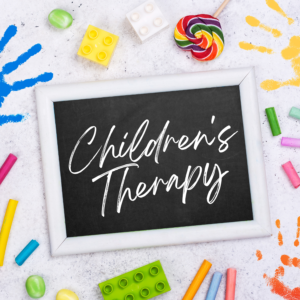 How you talk to your child about therapy can make a huge impact on their experience.
How you talk to your child about therapy can make a huge impact on their experience.
Children and teens might be asking to go to therapy and are choosing to seek out help. In other situations, a parent or caregiver is seeking out therapy either voluntarily or at the recommendation of someone. Ideally, when all are supportive and on board with therapy, there is a power team for progress to happen.
- Talk to your child about what to expect.
It is helpful to review the initial process. At CARE Counseling, the first session is with the parent(s)/ legal guardian and the second session is with the child. While the therapist will be going over some basics about confidentiality and gathering some information about the child’s view of the presenting concern and symptoms, the focus is on building rapport in the relationship. This includes getting to know the child, important aspects of their identity, and the people and things that are important to them. Treatment goals are discussed in the third session which helps set the stage for what to expect in therapy sessions.
- Tailor your language to that terms are familiar.
Young children may not know what a counselor or therapist is but may be more familiar with a teacher or doctor. Using simple language like a “feelings doctor” can help. Older children often use the terms “therapist” or “counselor”. For someone who struggles with their thoughts, describing therapy as a place to work on maintaining a healthy mind just like we go to the doctor or work with a coach to develop healthy bodies may be a good approach.
- Associate therapy with a positive experience.
If your young child has a fear of the doctor, then I would not describe an appointment to visit a “feelings doctor”. Perhaps “feeling helper” is a better option. We want therapy to be associated with having a positive experience.
- Normalize mental health.
It is heartbreaking when kids come to therapy thinking that they are a “bad kid”, or something is wrong with them. I like to separate misbehavior from being a “bad kid” because there is a difference. We all will struggle with thoughts, feelings, and behavior at some point, and it is admirable to seek out mental health treatment and learn lifelong skills that can be used throughout adulthood.
- Encourage creative expression.
Encourage children to come as they are! Kids have so much to share, and it is encouraged to express themselves. Many therapists utilize modalities such as play therapy. Art, music, and creative movement can be incorporated. Therapy can also be fun to build on the resiliency and strengths of children such as their energy, playfulness, and sense of wonder.
Written By: Charlotte Johnson, MA, LPCC
We’re Here to help
Our wellness experts will be happy to take care of you. You can CLICK HERE to schedule an appointment now or call (612)223-8898.
Meet Clinicians
We’re united by our commitment to providing effective, relevant, and innovative mental health support at all stages of your journey. Click Here to find a therapist or find out more about who we are, where we come from, and how we live out CARE’s mission every day.
The professionals at CARE are actively collecting and creating resources to help with what you need and address frequently asked questions. We’re Here for You.



